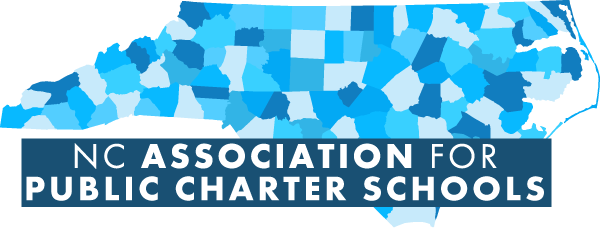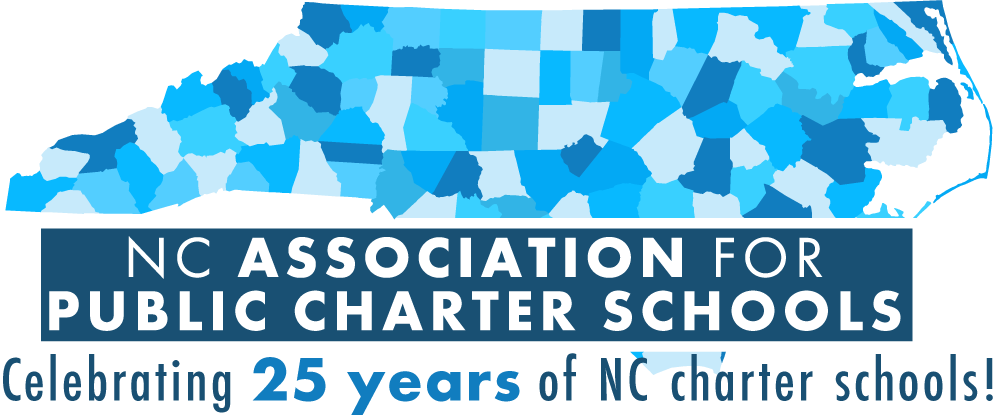To Be Rather Than to Seem: Gaining True Momentum in North Carolina by Rhonda Dillingham
Originally Published on CharterFolk: https://www.charterfolk.org/charterfolk-contributor-rhonda-dillingham-to-be-rather-than-to-seem-gaining-true-momentum-in-north-carolina/
North Carolina has entered a Golden Age of charter school legislation. Proposed statutes that would not have passed both Chambers of the Legislature just a few sessions ago have now been ratified by a Republican supermajority overriding the Democratic Governor’s vetoes. Two such statutes, HB 219 and HB 618, will have longstanding, positive repercussions for the charter school ecosystem in North Carolina. Our aim is to explore how our Charter School Association (CSA) played a major character in this political story and to quantify key progress indicators so that a similar approach might be systematically replicated in the future. Our state motto – Esse Quam Videri (To be rather than to seem) – rings true throughout the various stages of our approach.
1) Retain Ownership.
House Bill 219 – Charter School Omnibus – was written with the founding principles of North Carolina charter schools in mind, some of which has been augmented and manipulated over the years. Its initial aims included overhauls to per-pupil local funding, enrollment growth, and local capital funding. House Bill 618 – Charter School Review Board – was built upon a major organizational change to the charter school approval, renewal, revocation, and termination processes. Our advocacy team was prepped and ready to help convey the value of these new bills to our stakeholders so that we could rapidly mobilize.
As soon as these bills were proposed we were briefed on their content, their sponsors, and the likelihood that they would pass. We immediately took an ownership stance. We translated the meaning of the bills and their potential impact to our Board and membership, preparing internal stakeholders to put their own advocacy hats on. Specific outreach was allocated to developing a rapport with primary sponsors and supporters of the bills in both the House and Senate, as well as all members of both Chambers’ committees on K-12 Education.
With a few swift moves and emphatic emails, we established ourselves as the niche authority on these bills in partnership with our advocacy team. Securing this foothold early on was key in our ability to solidify standing roles as negotiators and watchdogs later in the process.
2) Take Inventory.
Now that you have locked in your seat at the table, you must familiarize yourself with the process by which the bills will move along in the statehouse. The bills will most likely not be ratified as they were written when first proposed. Lean on your advocacy team and your own legislative acumen to go through each bill line by line and determine what you are willing to part with and what hill you are willing to die on. Keep a copy of the legislation with your non-negotiables highlighted, then watch it transform across initial readings and votes.
New non-negotiables may be added in subsequent versions, and you may end up having to quietly rally for their removal. This was the case with HB 219. The Charter School Omnibus bill came with high hopes and admirable aspirations to make whole currently inequitable funding discrepancies that have been lamented throughout the NC charter school universe for some time. The bill sought to reverse court decisions that had rendered null some of the founding principles of NC charter school establishment.
We were building adversaries at this point in the form of the State Superintendents’ Association, where boilerplate resolutions denouncing HB 219 as a money grab were circulating and passing at district school board meetings across the state.
Per-pupil county funding was a hot button, and though it was initially positioned as the most significant portion of HB 219, it was swiftly and unceremoniously gutted. For the sake of the long game, our unquestionable advocacy for HB 219 had to continue. We had to champion the remainder of the pro-charter bill for the sake of passing what was left, which was still quite significant. We ended up with lifted enrollment caps for charters that are not low-performing; the ability for charters to admit out-of-state and foreign students; and, most importantly, the ability for counties to provide capital funding to charters if they wish to do so.
3) Recognize, Recognize, Recognize.
When you retain ownership of your pro-charter legislation, be sure to familiarize yourself with primary sponsors and supporters across the Legislature and adjacent to it. Why? So that you can thank and recognize them at every opportunity. We nominated two Co-Chairs of the House K-12 Education Committee to receive Charter Champion awards from the National Alliance for Public Charter Schools, and our nominations were successful. When we presented the awards on behalf of the National Alliance, we emphasized these recipients’ stewardship of HB 219 and HB 618 as a defining factor of their fittingness for the honor.
Applaud your advocacy team as being instrumental to the existence and wellbeing of the legislation that you are owning. Dues and donations support your association’s mission, so let members know that you are putting their money to work. Keep the connection strong through regular legislative updates via email and on social media. Make coverage of a bill and your team’s efforts to support it part of your main communications messaging throughout the entirety of the legislative bargaining process.
Recognize your adversaries so that you can employ counterattacks where applicable. In the case of the State Superintendents’ Association, we kept track of every district School Board that passed a resolution against HB 219 and then supplied charters in those districts with digital advocacy toolkits. These toolkits contained talking points, fact sheets, and form letters so that Board members, parents, and charter supporters could balance out negative positions by taking advocacy into their own hands.
4) Don’t Blink While Horse-trading.
Just when you think you are in the clear and the legislative review process has produced all the uproar you could possibly handle, expect surprises. In the case of HB 219, a Trojan Horse was added to a late version of the bill. This language, added long after our initial inventory, would have rendered current charter athletic division standards obsolete and forced charters to compete in the same divisions as their district counterparts, regardless of size. This was a turning point where we had to contemplate the consequences of cutting off our nose to spite our face. Were we to change our advocacy stance to raise awareness of this new language, potentially causing the overall movement to lose steam, or take the advice of our advocacy team and wait to see if all came out in the wash for the next version of the bill? We chose that second option and have zero regrets. By the time our membership could have gotten up to speed on the issue, the language had been removed from the bill, and it was chugging along again.
In the case of HB 618, things were not as straightforward. This bill was ratified by veto override with very few changes to the initial language. It essentially stripped the State Board of Education’s power as North Carolina’s charter authorizer and bestowed that power on the Charter School Review Board, which had previously been only an advisory board. Short in words and plain in purpose, we did not foresee any road bumps and let our guard down once the bill became law. As soon as we took our eyes off the end result, the state BOE passed a policy that would claw back some fiscal oversight from the newly-minted Charter School Review Board before the CSRB had even had a chance to meet. Then, before this article had been through a first draft, our advocacy team was briefing us on language in the state budget that overrode what the BOE was trying to do with their new policy. We came full circle on HB 618 in a matter of days.
5) Focus on Implementation.
So, your pro-charter legislation has passed through the statehouse and become law. You have been a good steward and have thanked everyone involved for doing their part. Now what? Keep spirits high and expectations realistic. Do not let negative media angles ruin your victory. Focus your outreach and communications efforts on implementation of the new laws. Break down what your member schools need to know so that they can comply with them. We are currently holding free webinars for all members hosted by our Association attorney in which school leaders and stakeholders can understand the implications of HB 219, HB 618, and more.
Second to taking ownership of the advocacy efforts that landed you in this sweet spot, the best stance that you can take is one of a CSA doing what CSAs do best: Supporting schools. There may be new legislation or policy-based activity on the horizon, as there is here in North Carolina, but don’t let new lines of effort take away from the battle that you have just won. Take time to explore questions and develop a rubric for identifying outcomes, positive and negative. You will build a treasure chest of collateral to use as evidence in future engagement with the sphere of political policy, and you will be well-versed in the lexicon of substantive legislative change as it applies to those whom you represent.
As states across America make headlines for charter-related change, our hope is that you can learn as much as we have here in North Carolina about the power that moves the needle and the lenses through which that power can be viewed most clearly.

